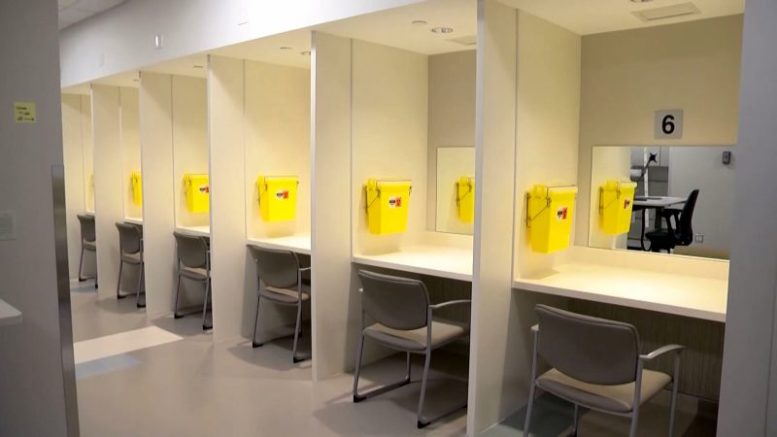By Jeremy Appel, Local Journalism Initiative Reporter
(ANNews) – Alberta’s government has postponed plans to require identification to access supervised consumption services for people who use drugs until 2022, the Edmonton Journal reports.
The announcement comes two weeks after harm reduction advocacy groups Moms Stop the Harm and Lethbridge Overdose Prevention Society launched a legal challenge against the government over the new Recovery-Oriented Overdose Prevention Guide announced in June, which will require clients to provide their personal health card number.
Advocates say this measure will add a needless burden to accessing a life-saving service.
Moms Stop the Harm co-founder Kym Porter says rather than postponing the changes, they should be scrapped entirely.
“This doesn’t go far enough. Alberta must repeal the restrictions it has placed on delivering and accessing supervised consumption services in the province or more people will die,” Porter said in a statement.
At the time of Porter’s statement, no SCSs in the province were made aware of the changes, which she says is concerning, as the changes were supposed to come into effect at the end of September.
“We are weeks away from when the restrictions were set to be put in place and, despite the postponement, the Alberta government hasn’t informed supervised consumption sites that they don’t need to implement the changes at this time,” said Porter.
“It’s reckless. Supervised consumption sites need to be notified immediately to ensure they don’t implement measures that will drive people away from accessing their services.”
In a statement sent to the Journal, associated minister of mental health and addictions Mike Ellis said the postponement is intended to ensure SCS operators are in compliance with the Health Information Act to protect their clients’ privacy while accessing their health numbers.
“Alberta’s government will not be deterred in our mission to improve service quality and community safety. It is unfortunate that advocates for supervised consumption services are opposed to ensuring they meet basic quality standards to integrate into the health-care system,” Ellis said.
A 2016 survey from the University of Alberta of 320 people located in downtown Edmonton who use drugs found that just 36 per cent of them would use a site that required them to provide their health card number.
The other requirements of the Recovery-Oriented Overdose Prevention Guide, such as a “good neighbour agreement” with surrounding communities that includes a dispute resolution process, regulations surrounding data collection, staff qualification and training, and clinical practice standards, still go into effect Sept. 30.
From January to May 2021, 624 Albertans have died from accidental drug overdoses, a 41 per cent increase from the same period in 2020.



Be the first to comment on "Alberta Government pauses plan to require ID for supervised consumption"